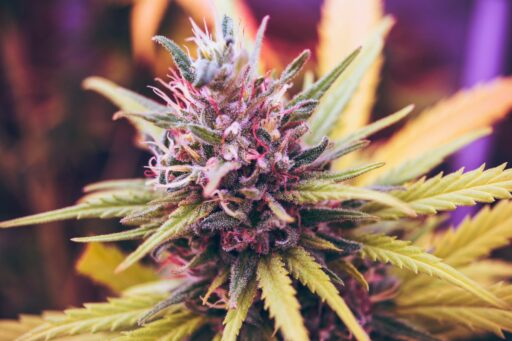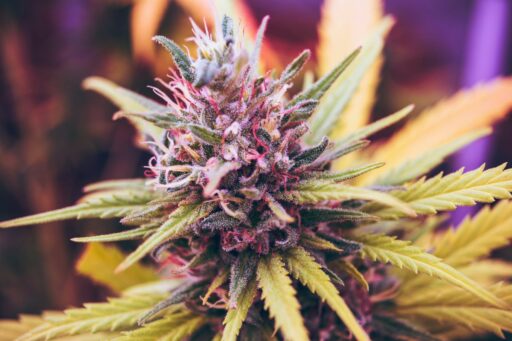In 2017, the landscape of medical marijuana underwent significant changes, particularly with Nevada’s legalization of recreational cannabis. This shift not only altered the legal framework but also impacted the consumer experience, from the availability of delivery services to the advent of marijuana lounges. Understanding these developments is crucial for both consumers and policymakers, as they navigate the complexities of medical marijuana regulations and their implications.
Key Takeaways
- Nevada’s integration of medical and recreational marijuana dispensaries in 2017 marked a significant shift in the cannabis industry, providing both locals and tourists with diverse options.
- The acceptance of out-of-state medical marijuana cards in Nevada offers visitors benefits such as lower prices and higher purchase limits, while also presenting regulatory challenges.
- Marijuana lounges and tasting rooms are emerging as new social spaces, offering legal environments for consumption amidst ongoing public consumption restrictions.
- Public opinion on the legalization of marijuana is complex, with a majority in favor but concerns about community safety and public health persisting.
- Federal and state legal frameworks remain at odds, with actions such as amnesty boxes at airports highlighting the ongoing legal risks for tourists and locals alike.
Navigating the Legal Landscape

Understanding State vs. Federal Regulations
In the United States, the legal status of medical marijuana is a complex tapestry woven from both state and federal laws. States have taken the lead in legalizing medical marijuana, with a diverse range of regulations and programs. However, despite state-level legalization, marijuana remains illegal under federal law, classified as a Schedule I substance with no accepted medical use and a high potential for abuse.
- Federal law prohibits the possession, use, and sale of marijuana.
- State laws vary widely, with some allowing medical use, others permitting recreational use, and a few upholding complete prohibition.
This dichotomy creates a precarious situation for patients, businesses, and regulators. For instance, a medical marijuana cardholder is compliant with state law but could technically be prosecuted under federal statutes. The enforcement of these federal laws has fluctuated, often depending on the priorities of the current administration.
The tension between state and federal regulations necessitates a careful navigation by all stakeholders involved in the medical marijuana industry to ensure compliance and avoid legal repercussions.
The Impact of Recreational Legalization on Medical Marijuana Laws
The advent of recreational marijuana legalization has brought about significant shifts in the medical cannabis landscape. Recreational laws have been associated with reductions in opioid prescriptions, suggesting a broader impact on public health and prescription drug use patterns.
- Studies show a 25% increase in past-year marijuana use among adults and a 10% increase among adolescents following recreational legalization.
- The integration of recreational dispensaries has expanded consumer choice, blurring the lines between medical and recreational cannabis markets.
The interplay between recreational and medical cannabis laws continues to evolve, with implications for consumers, healthcare providers, and law enforcement agencies.
While the legal changes have been welcomed by many, they also pose challenges for states in maintaining the integrity of medical marijuana programs and ensuring that the needs of patients are met.
Crossing Borders: The Legal Risks for Tourists
Tourists who enjoy the freedoms of medical marijuana states like Nevada often overlook the stark differences in cannabis legislation when crossing state lines. Taking cannabis across state lines is a federal offense, and the same applies to flying with cannabis in your possession. Even in states with legalized medical or recreational marijuana, public consumption can lead to legal complications.
While the allure of Las Vegas’s cannabis culture is strong, tourists must remember that what happens in Vegas, should stay in Vegas—especially when it comes to marijuana.
For those considering travel with cannabis, here are some key points to remember:
- Always consume cannabis within the same state where it was purchased.
- Be aware of the local laws regarding marijuana use and possession.
- Utilize amnesty boxes at airports like McCarran International for safe disposal before flights.
- Understand that testing positive for cannabis can impact employment opportunities in most states.
Embracing the Variety: Medical and Recreational Options

Benefits of Holding a Medical Marijuana Card in Nevada
In Nevada, the benefits of holding a medical marijuana card are multifaceted, particularly after the legalization of recreational marijuana in 2017. Cardholders are privy to lower prices and higher purchase limits, a significant advantage over recreational consumers. This is especially beneficial for those who require consistent access to cannabis for medical reasons.
- Lower prices on products
- Higher purchase limits
- Access to a wider range of products
- Legal protection within the state
While recreational dispensaries have become a staple in Las Vegas, medical cardholders often find a more tailored experience at dispensaries that cater specifically to medical sales. These establishments not only offer a more personalized service but also ensure that medical patients receive the products that best suit their therapeutic needs.
The integration of medical and recreational options in Nevada’s cannabis market has created a dynamic environment that caters to a diverse consumer base, ensuring that medical marijuana patients retain their benefits amidst the recreational surge.
Dispensaries: Catering to Medical and Recreational Consumers
In the evolving landscape of cannabis commerce, dispensaries have become the cornerstone for both medical and recreational consumers. Dispensaries offer a diverse range of products tailored to meet the varying needs of their clientele. From the potent concentrates for the experienced user to the milder, ingestible options for those new to cannabis, the product selection is designed to cater to every preference.
- For medical marijuana cardholders, dispensaries often provide additional benefits such as:
- Lower prices
- Higher purchase limits
- Tax exemptions
Recreational users, on the other hand, enjoy the convenience and variety that these establishments offer. However, it’s crucial to recognize that not all dispensaries serve both markets, and the tracking of purchases may differ between medical and recreational sales.
The integration of medical and recreational dispensaries has reshaped the consumer experience, offering unparalleled access to cannabis products while maintaining compliance with state regulations.
Out-of-State Card Acceptance and Its Advantages
The acceptance of out-of-state medical marijuana cards is a significant convenience for patients traveling to states like Nevada. Holding an out-of-state card can lead to lower prices and higher purchase limits, providing tangible benefits for visitors. However, it’s crucial to understand the limitations and regulations that come with this acceptance.
While some states offer this flexibility, others, like Florida, do not recognize out-of-state medical marijuana cards. This can pose challenges for traveling patients who rely on consistent access to their medication.
In states that do accept out-of-state cards, patients may find a variety of advantages:
- Access to dispensaries that may offer a wider range of products than available in their home state
- Potential tax breaks or reduced prices exclusive to medical cardholders
- The ability to purchase and possess larger quantities of cannabis
It’s essential for patients to research the specific laws and benefits in the state they plan to visit to ensure they can fully utilize their out-of-state medical marijuana card.
Convenience at Your Doorstep: Delivery Services

The Rise of Cannabis Delivery Options
The advent of cannabis delivery services has revolutionized the way consumers purchase and receive their products. With the convenience of home delivery, users no longer need to visit dispensaries in person, which is particularly beneficial for those with mobility issues or time constraints. However, the system is not without its challenges.
For those wanting the comfort of their home, delivery services from dispensaries provide a convenient option. It’s important to note that delivery to hotel casinos is prohibited, and payment is often cash-only due to federal banking regulations.
Despite the convenience, customers may face issues such as discrepancies between online menus and actual inventory. This can lead to frustration and the need for additional communication with the dispensary to confirm product availability. Moreover, the legal landscape remains complex, with inconsistent regulations across states creating a patchwork of compliance requirements.
- Ensure product availability by calling ahead or visiting the dispensary.
- Be aware of delivery restrictions, such as prohibition to hotel casinos.
- Prepare for cash-only transactions due to federal banking limitations.
- Understand your state’s specific delivery regulations to avoid legal issues.
Regulatory Challenges for Delivery Services
The advent of cannabis delivery services has revolutionized the way consumers access marijuana products. Despite the convenience, these services face significant regulatory hurdles. Payment methods are limited, primarily due to federal banking laws, which often restrict transactions to cash-only. This presents a logistical challenge for both consumers and delivery operators.
Moreover, the dynamic nature of inventory levels can lead to discrepancies between online menus and actual stock, causing frustration for customers expecting certain products. It’s advisable for consumers to verify availability directly with dispensaries to avoid disappointment.
- Regulatory compliance for delivery vehicles
- Ensuring driver safety and security
- Adhering to zoning laws and delivery area restrictions
- Navigating the complexities of delivering to non-residential locations
The landscape of marijuana delivery is constantly evolving, with new regulations emerging as the industry grows. Staying informed and adaptable is crucial for both consumers and providers to navigate these challenges successfully.
Consumer Safety and Privacy Concerns
In the evolving market of medical marijuana, consumer safety and privacy are paramount. With the rise of delivery services, customers expect not only convenience but also a guarantee that their personal information remains secure.
The integration of privacy and security features, such as RFID protection, ensures that personal data is safeguarded against unauthorized access.
Delivery services must adhere to stringent privacy policies, often mirroring those found in e-commerce platforms like Etsy, which include secure transactions and the safeguarding of account information. Additionally, the right to opt out of personalized advertising, as stipulated by state privacy laws, empowers consumers to have control over their data.
It’s crucial for consumers to be aware of their rights and the measures taken to protect their privacy. This includes understanding the implications of data sharing and the options available to limit such activities. As the industry grows, so does the importance of maintaining trust through transparent and robust privacy practices.
Legal Consumption and Future Developments

Marijuana Lounges and Tasting Rooms: A New Social Space
While public consumption remains restricted, the advent of marijuana lounges and tasting rooms provides a promising solution, offering legal and comfortable environments for tourists and locals to enjoy cannabis products. Las Vegas has begun to embrace these venues, with the first marijuana tasting lounge opening its doors, signaling a new era of cannabis culture in the city.
Las Vegas’s pioneering marijuana lounges and tasting rooms herald a new chapter in social cannabis consumption. These establishments are not just about enjoying a product; they are about experiencing the culture and community that has formed around cannabis.
The creation of these spaces is a testament to the evolving perception of cannabis and its integration into mainstream society.
Here’s a quick look at what these lounges offer:
- A variety of cannabis products for tasting
- Knowledgeable staff to guide the experience
- A social setting to meet fellow enthusiasts
- Events and educational sessions
As the industry continues to grow, these lounges are anticipated to become hubs for innovation and social interaction within the cannabis community.
The Debate Over Public Consumption Policies
The debate surrounding public consumption policies for cannabis is multifaceted, involving health, social, and legal considerations. Public consumption of cannabis remains a contentious issue, with many states grappling with how to balance individual freedoms with public health and safety.
- Health concerns: Despite potential health benefits, there is ongoing research into the health warnings associated with cannabis use.
- Social impact: Public consumption can influence societal perceptions and norms around cannabis.
- Legal challenges: States must navigate the complex interplay between local ordinances and state laws.
The complexity of public consumption policies is further compounded by the varying approaches states have taken, ranging from outright bans to designated consumption areas.
Ultimately, the resolution of this debate will require careful consideration of the diverse perspectives and the potential impacts on communities.
Anticipating Changes in Cannabis Hospitality
The cannabis hospitality sector is poised for significant transformation. New Colorado Marijuana Hospitality Rules are a testament to the evolving landscape, with increased sales limits and other regulatory adjustments. This shift indicates a broader trend towards integrating cannabis into various aspects of hospitality.
- Las Vegas leads the charge, with the first marijuana tasting lounge opening its doors.
- Delivery services offer convenience, yet face challenges like real-time inventory accuracy and payment restrictions.
- Public consumption remains restricted, but lounges and tasting rooms offer legal alternatives.
The integration of cannabis into hospitality promises to enhance the consumer experience, providing legal and comfortable venues for enjoyment.
As regulations continue to change, stakeholders in the cannabis industry must stay informed and adaptable. The anticipation of these changes is not just about compliance, but also about seizing new opportunities for growth and innovation in the sector.
Responsible and Safe Enjoyment

Educating Consumers on Responsible Use
In the evolving landscape of medical marijuana, consumer education is paramount. Understanding the correct dosage, strain, and method of consumption is essential for a safe and beneficial experience. It’s not just about legality; it’s about responsibility.
- Always start with a low dose, especially if you’re new to cannabis.
- Know the difference between THC and CBD, and what each can do for you.
- Recognize the signs of overconsumption and what steps to take if it happens.
While the freedom to use medical marijuana comes with many benefits, it also requires a level of self-awareness and education to ensure that use is responsible and in line with individual health needs.
Responsible use also involves understanding the legal aspects, such as purchase limits and the importance of not diverting medical marijuana to non-patients. By staying informed and cautious, consumers can enjoy the therapeutic advantages of cannabis without negative repercussions.
The Role of Law Enforcement in Ensuring Safety
In the realm of medical marijuana, law enforcement plays a pivotal role in ensuring that safety and legality go hand in hand. Officers are tasked with the delicate balance of upholding the law while respecting the rights of medical marijuana cardholders.
- Law enforcement agencies provide education to both officers and the community on the nuances of medical marijuana laws.
- They are responsible for distinguishing between legal and illegal cannabis activities, a task that becomes more complex with the presence of both medical and recreational use.
- Officers must also stay informed about the ever-evolving legislation to effectively enforce regulations.
The effectiveness of law enforcement in this context is not solely about adherence to the law but also involves community engagement and the promotion of public health.
The relationship between law enforcement and medical marijuana users is crucial for a safe environment. It requires ongoing dialogue, training, and adaptation to new legal frameworks to ensure that the benefits of medical marijuana are accessible without compromising public safety.
Addressing Public Health Concerns
The public health implications of medical marijuana are multifaceted, requiring a balance between accessibility for patients and the broader community’s well-being. A national study of clinical discussions about cannabis use underscores the importance of informed dialogue, especially as cannabis use becomes more prevalent among US adults.
Public health strategies often include educational campaigns and regulatory oversight. Here are some key considerations:
- Ensuring accurate information is available to consumers
- Monitoring and mitigating potential health risks
- Facilitating research on cannabis’s long-term effects
The goal is to foster a society that is well-informed about the benefits and risks associated with medical marijuana, without stigmatizing its use.
Collaboration across sectors is crucial for effective public health responses. For instance, the Mid-Ohio Farmacy program demonstrates the potential of community and medical partnerships in addressing health through nutrition.
Conclusion
As we reflect on the landscape of medical marijuana states in 2017, it’s clear that the integration of cannabis into the social and economic fabric of places like Nevada has marked a significant shift in public perception and policy. The acceptance of out-of-state medical cards, the advent of marijuana lounges, and the ongoing discussions around legalization reflect a nation grappling with the implications of cannabis use. Despite the complexities and varied opinions on safety and community impact, the trend towards embracing both medical and recreational marijuana continues to grow. With the majority of Americans favoring legalization and policymakers considering reclassification of the drug, the future of cannabis in the United States seems poised for further transformation, balancing responsible enjoyment with legal and cultural acceptance.
Frequently Asked Questions
What are the benefits of holding a medical marijuana card in Nevada?
Holding a medical marijuana card in Nevada allows patients to enjoy lower prices, higher purchase limits, and access to a wider selection of products at dispensaries compared to recreational consumers.
Can tourists use their out-of-state medical marijuana cards in Nevada?
Yes, Nevada accepts out-of-state medical marijuana cards, allowing visiting patients to purchase cannabis at dispensaries that cater to medical sales, often with the same benefits as local cardholders.
Is it legal to consume marijuana in public places in Nevada?
No, public consumption of marijuana remains illegal in Nevada. However, the state is opening marijuana lounges and tasting rooms where legal consumption is permitted in a social setting.
Are there delivery services for cannabis in Nevada?
Yes, cannabis delivery services are available in Nevada, offering convenience to consumers. However, these services face regulatory challenges and must ensure consumer safety and privacy.
What should tourists know about crossing state borders with marijuana?
Tourists should be aware that crossing state lines with marijuana is a federal offense, even if traveling between states where cannabis is legal. It’s important to dispose of any cannabis before crossing borders.
How does the legalization of recreational marijuana impact public safety perceptions?
Perceptions of public safety following the legalization of recreational marijuana are mixed. Some Americans believe it makes communities less safe, while others see no impact or consider it safer.





